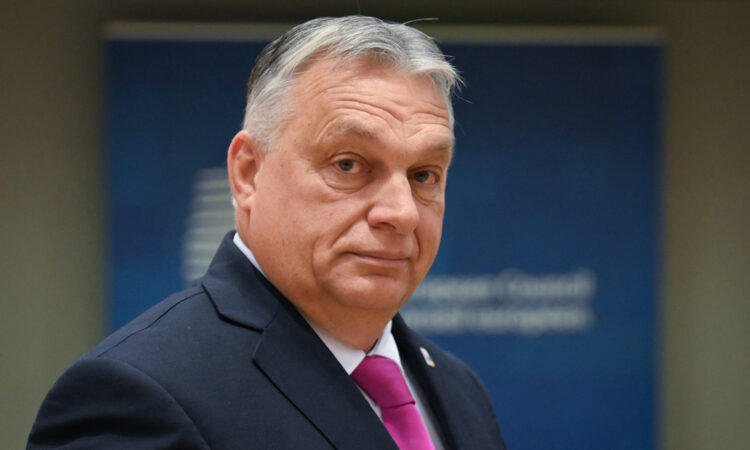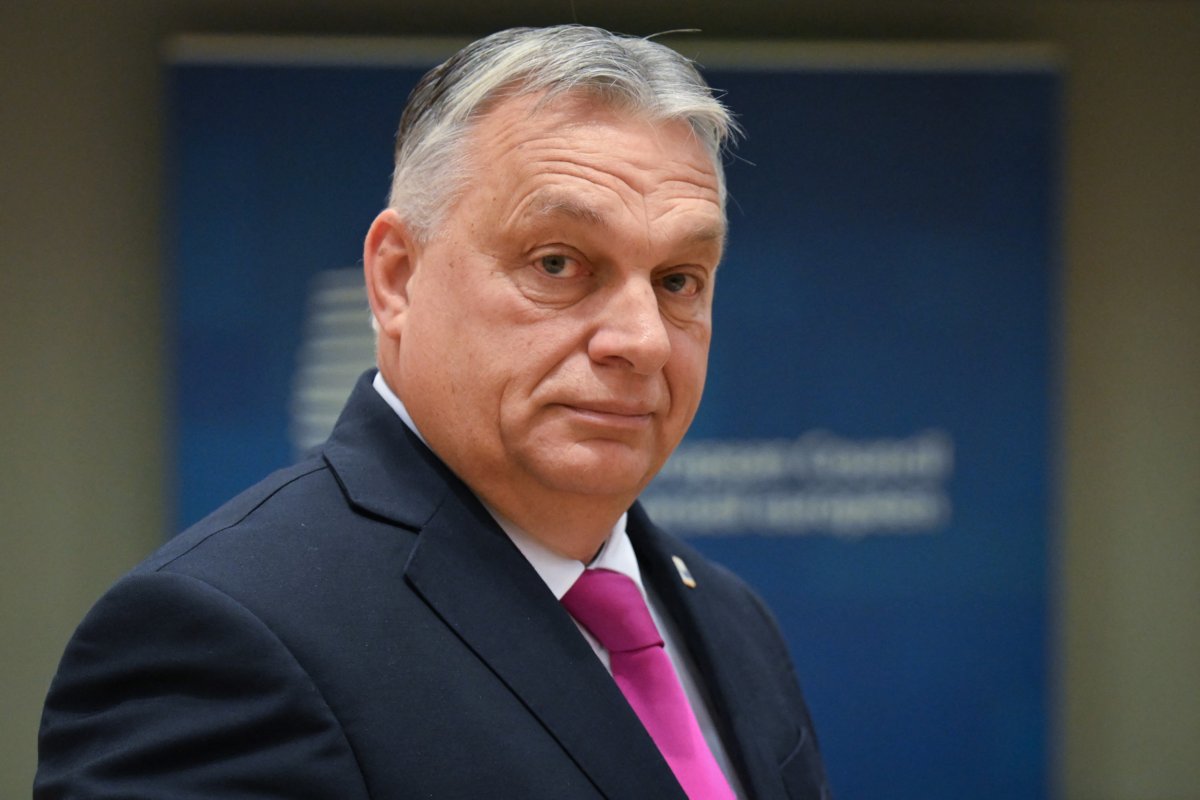
European Union member states are mulling a “Plan B” to neutralize Hungary’s block on some $54 billion in emergency funds for Ukraine, as Kyiv enters what is expected to be a punishing and dangerous second winter of full-scale war with Russia.
“Work on potential alternatives” to the stalled funding plan is under way, European Commission President Ursula von der Leyen said, after Hungarian Prime Minister Viktor Orbán delivered on his threat to block the latest tranche of funds for Kyiv at last week’s two-day summit in Brussels.
“We are working very hard of course to have a result where there is an agreement of 27 member states,” von der Leyen said. Charles Michel, the president of the European Council, meanwhile, said he remained “very confident” that the EU would find a way forward during an emergency summit in late January or early February.
The $54 billion in support for Ukraine was proposed as part of a revised EU common budget out to 2027. Such amendments require unanimity, giving each state a potential veto.

MIGUEL MEDINA/AFP via Getty Images
The setback for Kyiv comes as President Joe Biden‘s request for $60 billion in military aid for Ukraine remains held up in Congress.
A Commission decision to release 10 billion euros ($11 billion) in funds for Hungary frozen for almost a year over rule-of-law concerns was not enough to sway Orbán, who has consistently been the bloc’s biggest brake on expanded financial and military assistance to Ukraine.
The prime minister has traditionally sought close economic ties with Moscow and repeatedly clashed with leaders in Kyiv over the rights of the Hungarian-speaking minority in Ukraine.
Balázs Orbán, the Hungarian prime minister’s political director, suggested the $11 billion in released funds was not enough. “We don’t get our money. Why would we have any further [financial] facility?” he said, accusing fellow EU states of “blackmailing Hungary for years” by withholding the money. The Commission is still holding some $21 billion in funds for Hungary.
The remaining 26 member states are in agreement on a proposed plan for $54 billion in grants and loans for Ukraine over the next four years, the Financial Times reported. EU nations may proceed without Hungary by establishing a new fund outside of the common EU budget that does not require Budapest’s signoff, the newspaper said.
Hungary may even end up contributing to the fund, Balázs Orbán suggested. “Hungary is not against supporting Ukraine financially outside the budget, for a lot shorter period of time” and with “some recommendations,” he said.
Newsweek has contacted the prime minister’s office by email to request comment.
European leaders remain publicly confident of success, despite the latest high-profile setback. German Chancellor Olaf Scholz said he was “quite confident that we’ll reach an agreement in January,” urging fellow leaders not to “give up the objective” of funding Ukraine through the bloc’s common budget.
French President Emmanuel Macron said the other 26 states “won’t be blocked” by Hungary, calling on Orbán “to behave like a European and not take the political process hostage.”
In Ukraine, officials have been buoyed by the Commission’s decision to open membership talks with Kyiv. But Ukraine is also urging speed on aid. “You can’t win without help,” President Volodymyr Zelensky said last week shortly before the EU summit.
Oleksandr Merezhko, a member of the Ukrainian parliament and the chair of the body’s foreign affairs committee, told Newsweek that Kyiv’s EU partners “understand very well the difficult situation we are in now, and they realize how important it is to find funds for Ukraine as soon as possible.”
“We have only several months left, perhaps even two months. I’m confident that our partners will find the way to provide Ukraine with the necessary financial support. Too much is at stake.”
“It’s frustrating, of course, that Orbán is acting as a hostage taker to squeeze money out of the EU,” Merezhko added. “The EU shouldn’t encourage such political behavior. it shouldn’t yield to Orbán’s blackmail.”
Uncommon Knowledge
Newsweek is committed to challenging conventional wisdom and finding connections in the search for common ground.
Newsweek is committed to challenging conventional wisdom and finding connections in the search for common ground.






